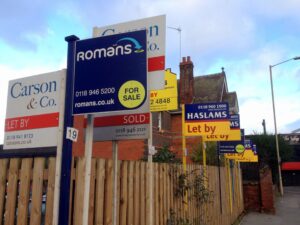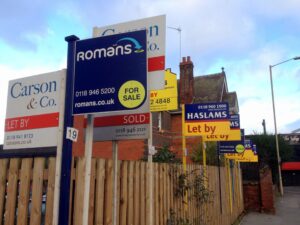
The end of the stamp duty holiday has resulted in British house prices slipping back from a record high, according to the latest government data.
The Office for National Statistics reported that the average price of home in Britain dipped to £268,000 in October from £271,000 in September.
In the year to October, prices increased by 10.2 per cent, or about £23,000. That was below the 12.3 per cent annual rise posted the previous month.
The ONS data is at odds with the recent surveys published by Nationwide and Halifax, the high street lenders. Both have reported a continued rise in prices since the stamp duty holiday ended.
The tax break, which came to an end in September, helped to push property prices up to record highs as would-be buyers rushed to save themselves as much as £15,000. The market has also been boosted by the pandemic-induced “race for space” as people have looked to move to bigger houses with more garden space.
Price growth has been strongest in Wales, where the average home was worth £203,000 in October, 15.5 per cent more than in October of 2020. In Scotland prices rose 11.3 per cent to £181,000 over the year, while in Northern Ireland they went up by 10.7 per cent to £159,000.
England remained the most expensive country in the UK to buy a house, but it is also where price growth has been slowest. Prices were 9.8 per cent higher at £285,000.
London, which bore the brunt of people moving out of cities and into bigger houses slightly further away, has been the worst-performing region. The capital recorded annual house price growth of 6.2 per cent. However, that was a significant improvement on the 2.8 per cent annual growth recorded in September. By some way, London remains the most expensive region, with its average house price hitting £516,000 in October, the ONS found.
“Acceleration of London prices reinforces the narrative that the appeal of city living is strongly linked to the easing of social distancing measures and the relaxation of international travel rules,” said Lawrence Bowles, director of research at Savills. “It also aligns with the latest RICS survey results, in which London showed the greatest increase in new buyer enquiries in November.”
Looking ahead, analysts expect that the market, which has run hot for the past 18 months, will cool down next year. Samuel Tombs, chief UK economist at Pantheon Macroeconomics, expects that higher mortgage rates and rising inflation will work to “subdue the housing market in the first half of next year”.
Read more:
House prices dip after end of stamp duty holiday
